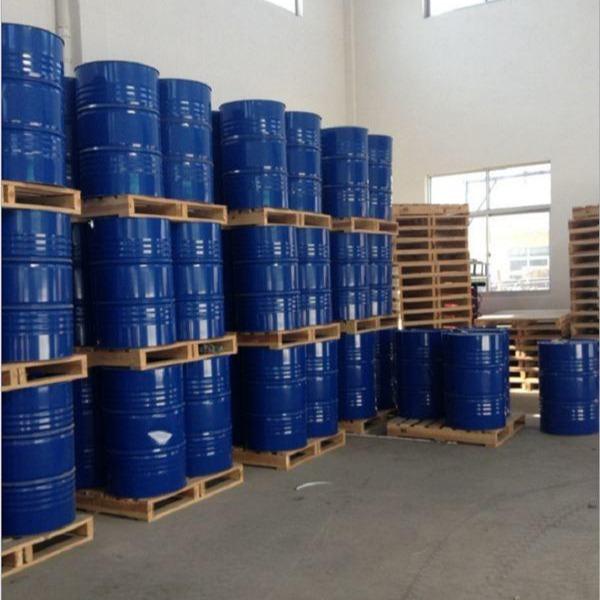-

2-Methyl-1-propanol
Isobutanol is also known as isopropyl methanol and 2-methyl propanol, with a molecular formula of C4H10O. Molecular weight 74.12. It is a colorless liquid with a special smell, and is one of the main components of the aroma of fresh tea leaves, black tea and green tea. Boiling point 107.66℃. Relative density 0.8016 (20/4℃). Refractive index 1.395Chemicalbook9. Flash point 37℃. It is miscible with alcohol and ether, and slightly soluble in water. Its vapor can form an explosive mixture with ai...Read more -

1-Octanol
Uses: Octanol is mainly used to produce plasticizers, extractants and stabilizers. It can also be used as an intermediate for solvents and spices. In the field of plasticizers, octanol often refers to 2-ethylethanol, which is an important raw material. Octanol can also be used as a spice to blend rose, lily and other floral fragrances, and as a soap fragrance. In addition, octanol is also allowed to be used in food flavors, mainly for the preparation of coconut, pineapple, peach, chocolate an...Read more -

1-Butanol
n-Butanol, also known as 1-butanol or butanol, is a type of alcohol. Each molecule has four carbon atoms and its molecular formula is CH3CH2CH2CH2OH. There are three isomers, namely isobutanol, sec-butanol and tert-butanol. It is a colorless liquid with a wine odor at room temperature. Its boiling point is 117.7°C, density (20°C) is 0.8109g/cm3, freezing point is -89.0°C, flash point is 36~38°C, and autoignition point is 689F. Refractive index (nChemicalbook20D) is 1.3993. Its solubility in w...Read more -

Isophorone
Chemical properties: Colorless low-volatile liquid. Freezing point -8.1℃, boiling point 214-215℃, 89℃ (1.33kPa), relative density (20.5/4℃) 0.9255, refractive index (nD18) 1.4766. Miscible with most organic solvents, 1.2g can be dissolved in 100g water. It turns into a dimer when exposed to light and oxidizes in the air to produce 4,4,6-trimethyl-1,2-cyclohexanedione. It has a camphor-like odor. Uses: 1. This product is a high-boiling point solvent. It is mainly used in pesticides, coatings a...Read more -

Salicylic acid
Chemical properties: Salicylic acid, also known as salicylic acid, is more acidic than benzoic acid. It becomes darker in the sun and turns into a purple-red chelate when it meets iron ions. It reacts with ferric chloride to form purple. It is unstable to heat and easily decarboxylates to form phenol when heated to 200°C. In nature, salicylic acid is mostly present in birch bark oil in the form of methyl ester, with a content of up to 96%. It is also present in cinnamon oil, violet oil, and w...Read more -

DIBK
Chemical properties: Colorless oily liquid. It has green, ether, fermented, fruity and sweet jackfruit or mint aromas. Boiling point 169℃, flash point 45℃. Insoluble in water, soluble in ethanol and oils. Natural products exist in kangniang wine, wine, etc. Uses: 1. Food flavoring. Mainly used to prepare flavors for jackfruit, banana, orange juice, passion fruit, tropical fruits, rum and kangniang wine. 2. This product is mainly used as an organic solvent and can also be used in organic synth...Read more -

PHENOL-FORMALDEHYDE RESIN
Phenolic resin is also called bakelite, also known as bakelite powder. It was originally a colorless or yellowish brown transparent substance. It is often sold in the market with colorants and is red, yellow, black, green, brown, blue and other colors. It is available in granular and powdered form. It is resistant to weak acids and weak bases, decomposes when encountering strong acids, and corrodes when encountering strong bases. It is insoluble in water, but soluble in organic solvents such ...Read more -

MIBK
4-Methyl-2-pentanone (methyl isobutyl ketone) reagent is widely used as a solvent in chemical and pharmaceutical industries, separation and recovery of nuclear fission products, and scientific research experiments. The content of 4-methyl-2-pentanone sold on the market is ≤99%, and it contains a small amount of alcohol, acidic substances, water and other impurities. 4-Methyl-2-pentanone is used as a solvent for nitrocellulose, lacquer, and certain polymers and resins. It is also a reactant fo...Read more -
Bisphenol A
Chemical properties: White needle crystals or flaky powder. Slightly phenolic odor. Soluble in ethanol, acetone, ether, benzene and dilute alkali solution, slightly soluble in carbon tetrachloride, almost insoluble in water. Uses: 1. It is an important raw material for the synthesis of polycarbonate, epoxy resin, and high-temperature resistant polyester. It is also used as a PVC stabilizer, plastic antioxidant, UV absorber, fungicide, etc. Bisphenol A is a widely used product, which is widely...Read more -

Cyclohexanone
Chemical properties: Cyclohexanone is flammable and may cause combustion when exposed to high heat or open flame. It will react violently when in contact with oxidants. If exposed to high heat, the internal pressure of the container will increase, and there is a risk of cracking and explosion. It is the same as open-chain saturated ketones. It can produce adipic acid HOOC(CH2)4COOH when oxidized with air, oxygen or nitric acid in the presence of a catalyst. Cyclohexanone oxime rearranges to f...Read more -

2-Butanone
CAS:78-93-3Read more -

Acetone
Acetone (CH3COCH3), also known as dimethyl ketone, is the simplest saturated ketone. It is a colorless, transparent liquid with a special pungent smell. It is easily soluble in water and organic solvents such as methanol, ethanol, ether, chloroform, and pyridine. It is flammable, volatile, and has relatively active chemical properties. At present, the industrial production of acetone in the world is mainly based on the cumene method. Acetone is mainly used as a solvent in the explosives, plas...Read more





